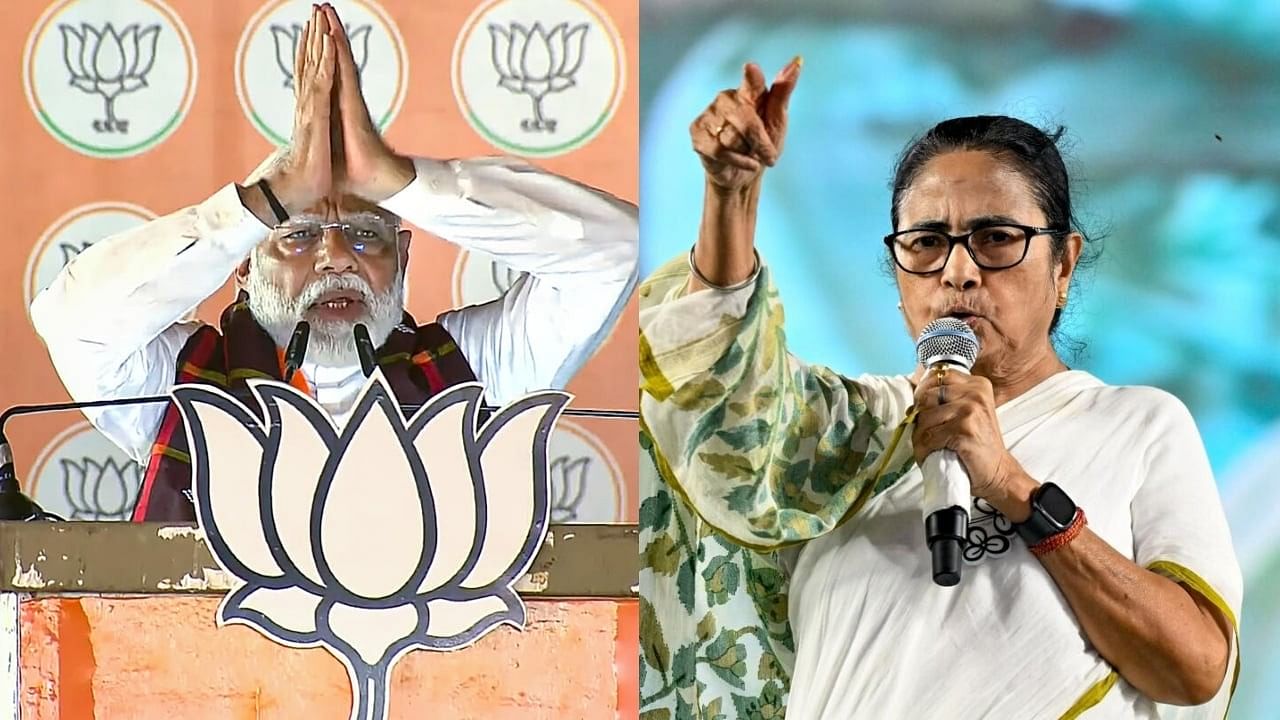
PM Narendra Modi; West Bengal CM Mamata Banerjee.
Credit: PTI Photos
Kolkata: West Bengal Chief Minister and the Trinamool Congress supremo Mamata Banerjee has urged Prime Minister Narendra Modi to defer the implementation of the three new criminal laws, which, she argued, should undergo parliamentary review once again for both ethical and practical reasons.
She alleged that the Modi Government in its previous term had got the three Bills passed by Parliament in an “authoritarian manner” in a “dark hour of democracy”.
The three new laws will come into effect on July 1. "We believe this postponement will enable a renewed Parliamentary review/mandate, reinforce public trust in the legal system, and uphold the rule of law in our beloved country," Banerjee wrote to Modi, seeking deferment of the implementation of the new laws.
The chief minister of West Bengal wrote to the prime minister expressing ‘grave concern’ over The Bharatiya Nyaya Sanhita (BNA) 2023, The Bharatiya Sakhsya Act (BSA) 2023, and The Bharatiya Nagarik Suraksha Sanhita (BNSS) 2023. She pointed out that altogether 146 members of parliament had been suspended when the Lok Sabha and Rajya Sabha had passed the three Bills in December 2023.
“The outgoing government of yours had passed these three critical bills unilaterally, and with absolutely no debate. That day, almost 100 members of the Lok Sabha had been suspended and a total of 146 MPs of both Houses had been thrown out of Parliament,” the TMC supremo wrote to the prime minister.
“The Bills were passed in an authoritarian manner in that dark hour of democracy,” she added, arguing that it was a matter that deserved a review now.
The first versions of the three Bills were introduced in Parliament in August 2023 but were withdrawn in December 2023, when Union Home Minister Amit Shah introduced new versions.
The three Bills were passed by the Lok Sabha on December 20 and by the Rajya Sabha on December 21, 2023. President Droupadi Murmu gave her assent to the three Bills on December 25.
The Bharatiya Nyaya Sanhita Act, the Bharatiya Sakshya Adhiniyam Act, and the Bharatiya Nagarik Suraksha Sanhita Act will replace The Indian Penal Code of 1860, The Indian Evidence Act of 1872, and The Criminal Procedure Code, 1973, respectively.
The Ministry of Home Affairs recently notified that the three new criminal laws would come into effect on July 1. However, Section 106(2) of the Bharatiya Nyaya Sanhita (BNS), which provides for a punishment of 0-10 years in prison in hit-and-run cases, has been kept in abeyance, in keeping with the government’s January 2024 assurance to the transporters.
“I urge your esteemed office now to consider at least a deferment of the implementation date. Reasons are two-fold: ethical, and practical,” Banerjee wrote to Modi.
“Given the wide-ranging reservations expressed in the public domain regarding the hurriedly passed new laws, fresh Parliamentary review of these attempts would demonstrate a commitment to democratic principles...This approach would afford the newly elected people's representatives an opportunity to thoroughly examine the proposed,” the West Bengal chief minister argued in her letter to the prime minister.
She wrote that her request for postponement had also been based on a pragmatic assessment of the challenges and preparatory work required for a smooth transition, particularly concerning the training of law enforcement personnel and judicial officers.
"Any far-reaching legal change requires meticulous groundwork beforehand to ensure effective enforcement and administration and we do not have any reason to avert such homework," the TMC supremo said.
